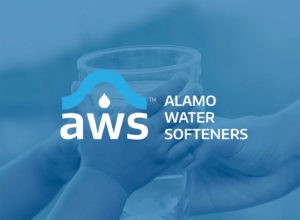The Importance of Water Testing for Your Home and Health


Alamo Water Solutions Houston – Drinking Water – Water Filtration – Hard Water Soltuions
Potable Water Quality Concerns
Water Testing has become an increasingly important and hot topic for your home and health since the Flint, Michigan contaminated water scandal from several years ago. This community’s toxic water proved that you can no longer take for granted that the water piping into your homes in America is safe to drink, to cook with, or even to wash in. In this article we look at how important it is to have your water tested for the sake of your family’s health.
The Hazardous Impacts of Contaminants on Your Health
The EPA (Environmental Protection Agency) is the government agency responsible for checking drinking water quality. They do this rather exhaustively too. The EPA actually sets a national standard for over 90 individual contaminants within your drinking water. Among the 90 contaminants, there are two categories into which they break down, acute and chronic. These categories vary according to the kinds of ill health impacts the contaminant can actually cause.
With acute impacts, they take effect in only from hours to days of consuming the water. This includes viruses and bacteria which can lead to the highest chances of suffering from such negative health impacts. For most individuals, their bodies will fight the microbe contaminants as they would with any other invading germ. This means that such acute contaminants do not usually lead to permanent effects. If you drink them in sufficient quantities, they can be hazardous though. This is particularly the case for those individuals who suffer from incapable or ineffective immune systems.
With chronic categories of impacts, the results do not show up until and unless individuals take in the contaminants in higher levels (greater than the safety standards the EPA sets) over an extensive time period. Such contaminants include a wide range of elements, like:
- Radium
- Chemicals
- Arsenic
Health risks that can arise from excessive levels of these three contaminants include liver problems, cancers, kidney issues, and reproductive problems.
Water Testing to Determine the Safety of Your Water
Water testing is the best way to determine how safe your drinking water at home actually is. This is why an effective water test will measure the levels of such contaminants (acute or chronic). Remember that according to the Safe Drinking Water Act, contaminants include chemical, physical, radiological, or biological elements in your water.
According to the EPA, compounds or elements are defined as chemical contaminants. These do not have to be man made, they could also be naturally occurring chemical compounds. Among the more common ones found in water are pharmaceutical toxins, metals, and pesticides.
Physical contaminants are easy to understand. They are literally any physical matter that changes the properties or physical appearance of your water. This could be organic material or sediment from rivers, lakes, and streams.
Radiological contaminants are defined by the EPA as chemical elements that possess an unbalanced quantity of neutrons and protons. This unbalance causes the atoms to give off radiation. Some radiological contaminants which are better known include the likes of plutonium, cesium, and uranium.
Bacterial contaminants are based on life forms found in your drinking water. These include viruses, bacteria, parasites, and protozoan. These last two can lead to very serious and long-lasting illnesses that are extremely difficult to overcome and recover from in many individuals with weakened immune systems.
What Are Typical, Specific Contaminants Found Commonly in Drinking Water?
Unfortunately there are more than half a dozen commonly found drinking water contaminants in the United States today. We consider these and their resulting hazards next.
Fluoride
No two individuals have the same reaction to minerals. This is why Fluoride can be good or bad. Overexposure to Fluoride remains the primary peril. In smaller amounts it is good for dental hygiene. In higher quantities, it can permanently discolor or damage teeth. Neurotoxicity is even more serious. This high level exposure to Fluoride leads to the regular activities of the neural system being permanently altered.
Arsenic
Arsenic is actually naturally occurring. Found in rocks as well as a byproduct of industrial activity, arsenic has certainly run into the groundwater in each state throughout the U.S. If you are exposed to this terrible contaminant, it an lead to changes in your skin, cancer, interruption of nervous and cardiovascular systems, and gastrointestinal problems and issues.
Lead
Lead is found throughout plumbing in the U.S. water systems. This is how it gets into your drinking water. Homeowners find it to be a major concern. It is especially damaging for pregnant women, infants, and smaller children. The negative impacts from it include a range of ailments from brain damage to stomach pains.
Magnesium and Calcium
Minerals that can be good for you like Magnesium and Calcium can also cause you harm if taken in sufficient amounts. These minerals typically would not create a negative impact directly on your health. Their presence in water leads to hard water though. This causes itchy and dry skin. It also diminishes the useful life of household appliances and even your clothing.
Bacteria
There are some terrible bacteria lurking in American ground water. Crypto and E. coli offer serious risks for people using ground water wells more than those who are hooked up to the public drinking water distribution network. Such pathogens come into your water from infected animals and humans feces. They lead to awful intestinal sicknesses in consequence.
Nitrates
Unfortunately, nitrates and related phosphates can and do seep into groundwater everywhere. These particular chemicals lead to a range of negative health problems, including cancer and kidney issues. For the elderly, nursing ladies, and pregnant women, such risks are particularly elevated.
The Differing Categories of Water Tests
Home Water Tests
You can always start by running your own DIY tests at home if you have suspicions about the quality of your drinking water. There are a variety of home water test kits which you can purchase today. The ones you can run yourself are surprisingly economical.
There are downsides and limitations to DIY water test kits though. They only deliver a certain level of information on your drinking water. This is mostly because they depend on treated slips to find the contaminants. Such slips do not have the necessary and precise accuracy that you would hope for in a water test sometimes.
A home kit is good for learning about extremely high quantities of particular water contaminants that are all too common. To obtain accurate information though, you would require an equipped and staffed laboratory of professionals.
Advanced Water Testing
To gain the perspective of a truly detailed investigation into your home’s water contaminants, you should go for a professional level water test. These water test labs are certified to provide you with much more detailed test results and useful information on your home drinking water.
Besides finding potential contaminants, such professional water testers are able to give you practical advice on what to do. It is invaluable to obtain specially tailored solutions for your budget, water quality, and life.
When Is The Right Time to Consider Getting Your Home Water Tested?
It is not always so easy to determine if you need to have your home drinking water tested for quality. The water test you need done is also affected by a range of factors, including federal and local regulations, climate, location, agriculture, infrastructure, and the hoped for level of contaminant detection.
The good news is that there are some tell tale warnings that you should undergo a drinking water test. If you and your family constantly experience continuous gastrointestinal issues and sicknesses, it would be a good idea to test your drinking water for coliform bacteria.
If you are concerned about heavy metals, then you can order a water test for copper, lead, or pH. This will tell you if your home plumbing has lead. Those dwelling close to an agricultural site should heed the EPA and its recommendation for checking water for pesticides, nitrates, and coliform bacteria.
Families who continuously suffer from dry and itchy skin ought to have their water tested for its (TDS) total dissolved solids and mineral hardness. Other good indicators of these issues are scale buildup on appliances and fixtures as well as spotted kitchenware.
If your laundry is constantly stained or your plumbing shows staining signs, then you can order a test for iron, manganese, and copper contaminants. When your water has a salty taste to it, or simply if you reside in an area where the government heavily salts its roadways, it is a good idea to have a test done for sodium, chloride, and total dissolved solids. Finally, if you live near to buried fuel tanks or working gas stations, then it is a good idea to have your water checked for VOCs, or volatile organic compounds.
Alamo Water Solutions in Houston offers water testing services. Contact us today for more information. Call us at (210) 274-6122.
Follow Us!
Alamo Water Solutions on Facebook
Alamo Water Solutions Reviews on Birdeye
Alamo Water Solutions on HomeAdvisor
